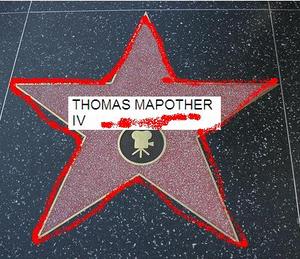With the 1970’s came change in film comedies. The popularity of such shows as Saturday Night Live and Second City Television led to films that were more manic and crazy. Stars such as Steve Martin, Richard Pryor, Cheech and Chong, Chevy Chase, John Belushi and Bill Murray became world famous for their movies.
Woody Allen and Mel Brooks both came into their own in the 70’s, doing some of their best work, some of which is listed below. Allen made several superior comedies that could easily make a ten best list and while Bananas, Everything You Always Wanted to Know About Sex…and Sleeper are superior comedies, they are not listed below. Allen finished the decade making either serious comedies (Manhattan) or straight dramas (Interiors). Similarly, Mel Brooks made five films in the decade and four of them could be considered excellent. The Twelve Chairs and Silent Movie are both well worth watching but also not listed below.Brooks finished the decade with a decent but nowhere near classic comedy (High Anxiety), which was his last truly good film.
There were several films beside those listed above that could have made the best list. Personal preference precluded them from being listed here but it makes them no less funny. Breaking Away, The Goodbye Girl, MASH, Paper Moon, Richard Pryor – Live In Concert and Slapshot deserve mention with any of the films listed below.
Here are the ten best comedies of the 1970’s listed in alphabetical order:
AMERICAN GRAFFITI (1973 – Director: George Lucas) – Before Star Wars, director George Lucas struck gold with this low budget comedy about one night in the life of a group of teenagers coming of age after having graduated high school. Lucas interweaves different stories, each one just as interesting and entertaining as the next, resulting in a comedy classic laced with wall-to-wall period music. Starring Ron (Ronny) Howard, the film featured then unknowns Richard Dreyfuss, Candy Clark, Paul LeMat, Charles Martin Smith, Mackenzie Phillips, Cindy Williams, Harrison Ford, Suzanne Somers and Kathleen Quinlan. Legendary disc jockey Wolfman Jack’s voice is featured prominently and he appears in a brief but very memorable scene. The film, nominated for five Academy Awards (Best Picture; Director; Screenplay; Supporting Actress – Candy Clark; Editing), cost only $750,000 to make and grossed over $55 million making it the third highest grossing film of the year, surpassed only by The Exorcist and The Sting. An ambitious but less successful sequel, More American Graffiti, featuring much of the original cast (sans Richard Dreyfuss) but not directed by George Lucas (he executive produced), premiered in 1979.
ANNIE HALL (1977 – Director: Woody Allen) – Considered to be Allen’s masterpiece, Annie Hall is less farcical then his earlier works but equally as funny while still being serious. Allen plays Alvy Singer, a stand up comedian and writer who falls in love with a prospective singer (Diane Keaton) while evaluating the failures of past relationships. Allen perceptively covers the ground of romance, relationships, fame and even New York City versus Los Angeles. Says Alvy of L.A., “The only cultural advantage is making a right turn on a red light.” Tony Roberts, Colleen Dewhurst, Carol Kane, Shelly Duvall and Paul Simon lend terrific support which also features blink and you miss them cameos by then unknowns Sigourney Weaver, Jeff Goldblum, Shelly Hack and Beverly D’Angelo. Then unknown Christopher Walken appears briefly as Keaton’s brother who privately admits to Allen that when he drives he fantasizes about steering into an oncoming car to hear the sounds of crushing metal and breaking glass. Guess who is picked to drive Allen and Keaton to the airport? Allen’s look in that scene is priceless. Even non-Woody Allen fans seemed to embrace the movie and it remains his most popular. It was nominated for five Academy Awards (Best Picture; Director; Screenplay; Actor – Allen; Actress – Keaton) and won all but Best Actor.
BLAZING SADDLES (1974 – Director: Mel Brooks) 1974 was a banner year for Brooks as he released this film in March and Young Frankenstein at Christmas. Both films made it into the top five grossing films of the year and both were nominated for Academy Awards. Brooks poked fun at the Western (and everything else) and manages to offend every race and religion in the process. Cleavon Little stars as the new sheriff of the small town of Rock Ridge where people don’t take too kindly to black people (The N-word is used repeatedly, courtesy of co-writer Richard Pryor). Gene Wilder plays a drunk who becomes the new deputy. Harvey Korman is Hedy – uh – make that Hedley Lamar, the villain of the film. Madeline Kahn steals the movie in her brief role as nightclub singer Lily von Shtupp, a Marlene Dietrich take off with a lisp. For sheer belly laughs there may be no equal to Blazing Saddles though the film does run out of steam in its last ten minutes, but by then we are practically laughed out. This is a film that demands repeated viewings just to pick up the little jokes Brooks has inserted in virtually every scene. Nominated for three Academy Awards (Best Supporting Actress – Kahn; Song; Editing), the film was the second highest grossing film of the year (behind Towering Inferno) grossing almost $49 million.
THE IN-LAWS (1979 – Director: Arthur Hiller) – The sleeper hit of 1979 was this classic comedy starring Peter Falk as a CIA agent whose son is about to marry dentist Alan Arkin’s daughter. Because of work Falk is often absent and is finally able to make dinner at Arkin’s where he plants some key evidence in a major heist in Arkin’s basement. This drags poor Arkin into an international plot that will have him running for his life in different countries. The juxtaposition of Falk’s utter calmness with Arkin’s out of control ranting is a perfect blend added to a smart script by Andrew Bergman. Often not as recognized as other great comedies, The In-Laws deserves to be remembered and seen by those who haven’t discovered it yet. Unfortunately the film was remade a few years ago with Michael Douglas and Albert Brooks and was a major step down from the original. It was a flop.
LOVE AND DEATH (1975 – Director: Woody Allen) – Allen’s best out and out comedy stars Allen as a coward in the Napoleonic wars who falls in love with a woman (Diane Keaton) who is assigned to assassinate Napoleon. Allen spoofs Russian literature, foreign films and silent films and hits every target he aims at. Definitely not for all tastes, Allen does provide enough of his usual humor to keep even non-fans entertained.
NATIONAL LAMPOON’S ANIMAL HOUSE (1978 – Director: John Landis) – The biggest comedic hit of the decade was this pulls no punches comedy that was parts rite of passage, part slapstick comedy and part “slob humor” about college life in 1962, in particular the lives of the members of the Delta House fraternity. Food fights, toga parties, and sexual hijinks – the film had it all. Chief among the slobs was John Belushi who sealed his fate as a superstar with his role as the beer can crushing Bluto. Belushi’s scene in the school cafeteria has to be seen to be believed as he crams food in his mouth (including a burger the size of a Whopper), on his plate and in his pockets before stuffing mashed potatoes in his mouth imitating a zit. Get it? The film introduced us to such actors as Tim Matheson, Tom Hulce, Karen Allen and Kevin Bacon. Appealing to everyone under the age of 40, Animal House went on to gross over $70 million as it played in most first run theaters from its July opening right up until Christmas.
A NEW LEAF (1971 – Director: Elaine May) – Now we will look at a film at the opposite end of the blockbuster spectrum that was Animal House but is no less funny. A New Leaf stars Walter Matthau as a life long spoiled rich man who suddenly finds himself broke and destitute. In an attempt to reverse his fortunes, Matthau decides to find and marry a very rich woman and then kill her so he can inherit her millions. Enter Elaine May (who wrote and directed) as a klutzy plant expert that falls for Matthau and tests his will and patience as he proceeds with his dastardly plans. Despite glowing reviews, A New Leaf was a major flop and has yet to find the audience it deserves. What they will find is a sweet comedy with pinches of black humor sprinkled in and blended nicely. Matthau and May are terrific together in every scene from the most silly to the most romantic. Interestingly, Elaine May disavowed the film after the studio took it out of her hands and cut nearly an hour out of the finished product. While May has every right to her wish involving the project, its hard to imagine the film being much better then it is.
OH, GOD! (1977 – Director: Carl Reiner) – One of the sweetest comedies ever made stars George Burns as the title character who comes to supermarket manager John Denver asking him to pass the word along that He is alive and well and watching. Naturally Denver is skeptical at first but when he starts spreading the word he becomes a media celebrity in some circles and derided as a nut in others. Director Reiner and writer Larry Gelbart avoid the silly paths this film could have taken and provides a light and gentle film with a most upbeat message. Burns was born to play God but the revelation is singer John Denver, in his film debut, giving a wonderful performance as a man just trying to do the right thing. Oh, God was nominated for an Academy Award for Gelbart’s screenplay and was a hit in the fall of 77. It inspired two sequels, one not so good (Oh, God Book II) and one not so bad (Oh, God You Devil).
10 (1979 – Director: Blake Edwards) – Blake Edwards’ very adult comedy introduced the world to Bo Derek and her corn roll hairdo. Dudley Moore stars as a music composer who hits his midlife crisis after his surprise 40th birthday party. Despite a successful career and a beautiful girlfriend (Julie Andrews), Moore feels slighted in his life until one day he is driving and spots a beautiful woman (Derek) in a limousine as she heads to her wedding. Moore eagerly tries to follow her until he smashes head on into a police car. Once that mess is cleared he goes to the church and tries hiding in the wings amongst the flower arrangements but disrupts things when a bee stings him. After going to his shrink (where he describes the woman as an “11” on a scale of one to ten), he finds her father who happens to be a dentist. The dentist visit results in major dental work so serious he can’t swallow a drink of coffee or speak clearly. He then heads to Mexico in search of the woman of his dreams, despite her being on her honeymoon, and finds her. Edwards takes a comedic look at the serious subjects of aging and fidelity and strikes gold in a rare comedy for adults only.
YOUNG FRANKENSTEIN (1974 – Director: Mel Brooks) – Brooks’ second smash hit of the year was a parody of the classic “Frankenstein” movies with Gene Wilder as the great grandson of the famed doctor who built a creature that terrorized a village. So wanting to disassociate himself from the family name, he even changes the pronunciation of his last name to Frahn-ken-steen. He travels to Transylvania where he meets his new assistant Igor (pronounced Eye-gor and played by Marty Feldman) and soon finds himself creating a monster of his own. Madeline Kahn, Teri Garr, Peter Boyle (as the Monster) and Cloris Leachman (as Frau Blucher, whose very mention of her name drives horses crazy) co-star in one of the funniest and most quotable movies ever made. Boyle’s visit to a blind man (played with comedic relish by Gene Hackman) is one of the great movie comedy scenes. Nominated for 2 Academy Awards (Best Adapted Screenplay – Brooks and Wilder; Sound), the film made almost $39 million to become the third highest grossing film of the year.



